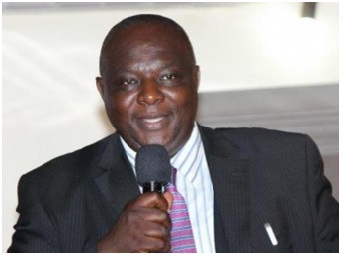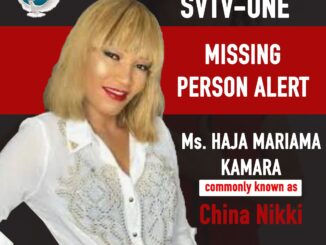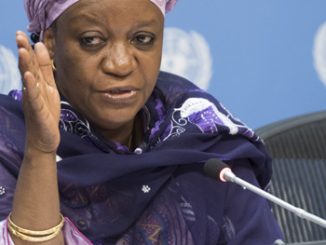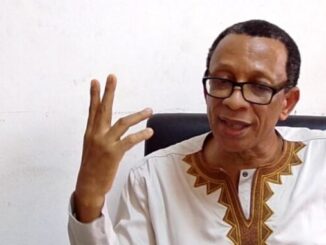
The Creoles of Sierra Leone are an interesting people. Their way of life seems to be the only context which accords identity to the people but in everything else they tend to exhibit bitter lines of discord and disunity.
For some, the blame rests with a colonial administration that gave false assurances of their supremacy when all power was being passed over to the political classes. For others, the blame sits with the avowed aversion to politics that the Creoles took, before and after independence because of its fluid nature, its transient authority and the propensity to wreck havoc on the lives of others, not forgetting the opportunity for violence and sudden death. It is no wonder that time passed them by and the present realities are of a people with a discordant voice, a disparate existence and a disengaged political reality.
Interestingly, the British had such lofty assessment of their future in this country that they made discriminatory laws that sought to withhold their rise to national dominance in the politics and governance of this nation. In that, is found the dichotomy of ridicule – the principle that even though they had the chance to dominate the landscape, the Creoles engaged in self harm and internecine struggles that left them cowered and encumbered by hatred and envy of each other. The popular adage that Creoles don’t like each other is given credence and to a point has been responsible for the demise of this once powerful group of people to have co-existed in the same place.
Against this background comes a country that developed its principal territory around the space occupied by these self destructing compatriots. That they failed to engage in the political realities around them was driven by a false hope on their part that those who so engage would wallow in self pity, not realizing that the encroachment into their way of life would have such telling consequences. In the event, even management of their very affairs is now subject to challenge from those who have come to join them in their space. One thing that some people fail to understand is the fact that the Creoles are the only peoples for whom the land they lay claim to was bought for that purpose. Freetown was paid for, more than twice in fact, by barter and then several times over by blood. The Creoles have had to fight battles of several variations to retain this place called the Western Area. They inhabited the most obscure of occasions just so that they self preserve but in the end are now being overrun by those land grabbing and searching for a stake-hold in the city. The squeeze has also come from the economical front as families are bought out by finance as an alternative to self destruction and the upsurge of avarice. Creoles would rather sell off land and property to rank outsiders than to a family member or even to another Creole. That being the least of their lows, better to sell to who you don’t know than to someone who will be wont to remind you of your loss at every opportunity.
It is no doubt that the future of this disparate yet powerful clan needs tangible assurances of security and a determination to allow for their full integration into the political landscape. One thing that is certain is that even though they have yielded to pressures of culture and economics, they remain the most powerful force in the economics of Freetown. They hold sway to some of the most valuable real estate in the city and are a better educated and skilled workforce as a group. Their voices are beginning to regain their tincture and a collective realization of their heritage is the basis for the emergence of “Krio Descendants Unions” (KDUs) of every hue across the World.
Krio being the language of the Creoles, it is significant that the KDUs have hinged their identity in terms of communication rather than by lineage. This opens the door for an amalgamation of the various types of peoples who see themselves as part and parcel of the Creole inheritance.
In the advancement of the Creole agenda, several issues come swiftly to mind. The first one for the Creoles is the process of contemplating the reality of their current aspirations in the definition of self. The second being how to restate their commitment to the political advancement of this space that they occupy and of this nation that we all hold so dear. A Creole Mayor of Freetown should be a matter of constancy and of legitimacy. To argue otherwise leaves the corollary argument of necessity that the Creoles should be made eligible to stand for and hold office without preconditions in any part of the country. The context of the management of Freetown as a local authority should be made a constitutional issue, just the same way as it is clear that a Temne cannot be made Chief over Mendes in Mende Land and even as was so forcefully determined that a Mende Bishop cannot hold church in Makeni, a Temne enclave. Some of these events threaten claims to legitimacy and hold back the advancement of modernity by promoting territory grabbing, disenfranchisement and exclusion.
Also of immediate concern should be the restrictions on land acquisition against the Creoles that exist in our law books. Such discriminatory laws are illogical and in effect unlawful and contradictory to a modern political and social dispensation and to the attributes and enjoyment of citizenship. In the event, the Creoles should be allowed to buy or secure land from anywhere in the country by a simple application to the Chief as custodians of traditional land.
Significantly, the representation of the people in this country calls for two sets of people at Parliament. One set are those voted for by the electorate and the other set are those selected by a cohort of their peers as traditional leaders. For all this while, no such representation from the second set have been allowed from the Creoles. Notwithstanding the fact that the Creoles are to be found in significant numbers in the Western Area’s two Districts of the country. This anomaly must be corrected by a constitutional amendment to allow for two representatives from the Creoles in these two districts to match the other twelve Districts and that these representatives be drawn from equivalent Creole cohorts. That the Creoles do not have Chiefs was always a lame argument because the Creoles have equivalent leaders in their communities. The Creole Agbas, Headmen, Master Masons etc are sufficient to serve in any capacity ascribed to securing their interests and for that matter, these people have done admirably well in keeping and maintaining Creole traditions and have shown a desire to evolve and survive by extending such traditions to other parts of the country through infusions.
The proposition therefore that the Creoles have to fight for space that is already bought is unacceptable. The adoption and propagation of discriminatory laws and edicts should be a matter of concern for all because any disparity in privileges can be inimical to a fair and equitable citizenship. One citizen must not be better off than another under our laws, For now, regrettably, that is the case.



